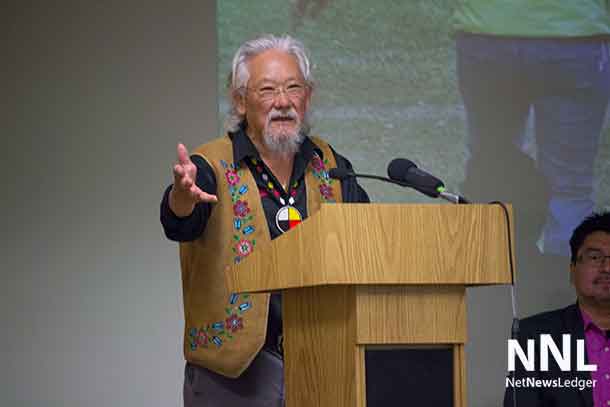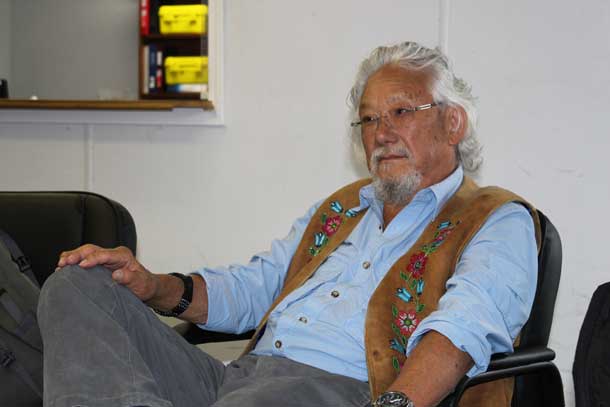
VANCOUVER, BC – ENERGY EDITORIAL – There was little doubt the federal government would approve the Enbridge Northern Gateway pipeline project, regardless of public opposition or evidence presented against it. The prime minister indicated he wanted the pipeline built before the Joint Review Panel hearings even began. Ad campaigns, opponents demonized as foreign-funded radicals, gutted environmental laws and new pipeline and tanker regulations designed in part to mollify the B.C. government made the federal position even more clear.
Canadian resource policy is becoming increasingly divorced from democracy. Two infamous omnibus bills eviscerated hard-won legislation protecting Canada’s water and waterways and eased obstacles for the joint review process, which recommended approval of the $7.9-billion project, subject to 209 conditions. The government has now agreed to that recommendation. The time-consuming hearings and numerous stipulations surely influenced the government’s decision to restrict public participation in future reviews, making it difficult for people to voice concerns about projects such as Kinder Morgan’s plan to twin and increase capacity of its Trans Mountain heavy oil pipeline from Alberta to Burnaby from 300,000 to 900,000 barrels a day, with a corresponding increase in tanker traffic in and out of Vancouver.
And to keep democracy out of fossil fuel industry expansion, the government switched decision-making from the independent National Energy Board to the prime minister’s cabinet.
Probably the most egregious omission from the review process is the dismissal of impacts such as climate change and rapid oil sands expansion. Here’s how the panel justified not taking these into account: “We did not consider that there was a sufficiently direct connection between the project and any particular existing or proposed oil sands development or other oil production activities to warrant consideration of the effects of these activities.” As for climate change from burning the product, “These effects were outside our jurisdiction, and we did not consider them.”
A pipeline to carry diluent from the coast to the oil sands to dilute bitumen that would then be carried back to the coast in another pipeline for export to world markets in supertankers does not have a “sufficiently direct connection” to the oil sands? And the impacts of the oil sands and its products on climate are not relevant to the project that makes these impacts possible? What the hell?
This project should never go ahead. And not just because no amount of money will undo damage from pipeline or tanker spills and accidents along the route, the B.C. coast or the ocean, or that it is opposed by First Nations and other affected communities and lacks social licence – although those are strong enough reasons to stop it. The main reasons it and other pipeline projects shouldn’t be built are the very same ones the government and joint review panel refused to consider.
Rapid oil sands expansion, increasing reliance on dirty fossil fuels and more infrastructure that ties us to them for decades contravene the need to protect the environment, human health, global climate systems and even economic resilience.
Our choice is between ignoring overwhelming scientific evidence about the human contribution to climate change and pollution or changing our ways and reducing carbon emissions and fossil fuel dependence. It’s about whether to join the green economy or pin our economic hopes on an increasingly risky industry. It’s about the kind of country – and planet – we want to leave to our children and grandchildren.
The government has irresponsibly weakened democracy in its willful blindness to the most pressing economic and environmental issue of our time. The spectre of climate change means all humanity has a stake in the future of coal and oil. To avoid the worst impacts, we must shift to a zero-carbon-emissions energy system within the next few decades. Yet Canada doesn’t even have a national energy strategy! As Canadians witness how vulnerable our communities are to climate change impacts like increased intense precipitation and flooding, sea-level rise and risks to food production, demand will grow for solutions such as clean energy.
Northern Gateway has received qualified government approval. The decision will now face First Nations court challenges and backlash from the majority of British Columbians and Canadians whose voices have so far been ignored. For the sake of our communities and the future of our children, let’s hope democracy prevails.
Dr. David Suzuki is a scientist, broadcaster, author, and co-founder of the David Suzuki Foundation.
www.troymedia.com


